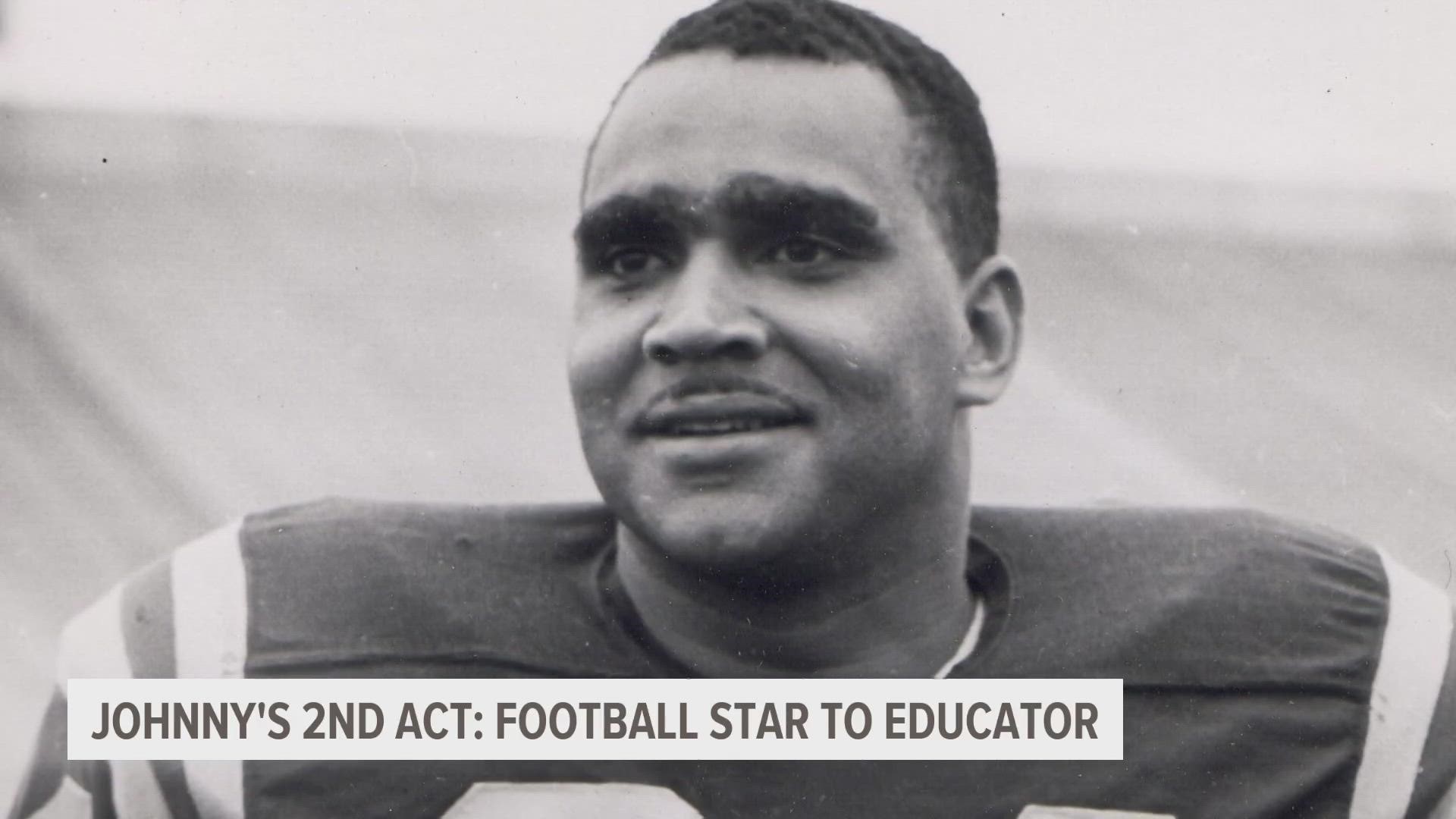DES MOINES, Iowa — When an athlete's career comes to an end, there's often an assumption that it's the end of their story. But that's not really the case.
For Drake football great Johnny Bright, the end of his football career was the beginning of a new career dedicated to shaping young minds and serving others.
His legacy as an athlete and a scholar is held in high regard at his alma mater.
Bright was one of the most talented and successful football players of his time, even though discrimination and racism presented countless roadblocks throughout his career.
"Johnny had a commitment to himself that, 'I am going to succeed despite people trying to pull me down, people not wanting me to succeed,'" said Dolph Pulliam, former Drake basketball player.
Pulliam attended Drake in the late 1960s and got to meet Bright after his coach asked him to take Bright on a tour of the athletic facilities. Pulliam said he still thinks about the advice Bright gave him back then.
Bright's career began to take shape while at Drake University. He was a multi-sport athlete, but football was where he excelled the most.
During his sophomore season, he achieved his long-time goal of playing quarterback at the college level and totaled 1,950 yards — making him the first sophomore player ever to lead the NCAA in total yards for a single season.
He had another record-breaking season during his junior year and by his senior year and was considered a favorite to win the Heisman Trophy.
Despite being the school's star player, you couldn't tell by the way he was treated.
"Blacks were not allowed to live on campus. You couldn't eat your meals in the dining hall with the rest of the students. You weren't allowed to do that," Pulliam said. "So, they had to find rooms in the African American community for him to stay in, and they'd fix his meals and what have you, so that was his life."
Bright couldn't escape the prejudice on the football field either.
In what's known today as the Johnny Bright incident, his jaw was broken during a game against Oklahoma A&M in 1951 as a result of a vicious hit by an opposing player despite not even having the ball.
The incident led to major changes to NCAA rules, like the implementation of helmets with facemasks and cracking down on illegal blocks.
Even after the incident, there was no doubt that Bright was destined for a great pro football career.
But the football star also had his sights set on another dream of his.
"For him, athletic prowess opened the door to ongoing education, and he chose to study education when he came to Drake. So, it wasn't just he came to Drake to get an education, he already had the ambition of paying it forward," said Craig Owens, John Dee Bright College dean.
After college, Bright had a hall-of-fame career in the Canadian football league, with several records and awards to show for it.
But that's not where Bright's story ends.
By the time he decided to hang up his cleats for good, he was ready write the next chapter in his life.
"After the athletic career is done, Johnny got a second act," Owens said.
That second act would be just as impactful as his first.
After his retirement, Bright remained in Canada and began his career as a teacher.
He eventually worked his way up to becoming a principal within Edmonton Public Schools.
"The chance to be under the stadium lights, all eyes on you with the football making the big play. When that ends, Johnny turns his attention to something as demanding — arguably higher impact, but lower profile. But [he] never regrets having made that decision, never thinks this is a consolation prize," Owens said.
Bright spent almost two decades working in education up until his death at just 53 years old in 1983.
"It really feels like education, his career in education, was more like the culmination of a lifelong career rather than a coda or an addendum or an afterthought," Owens said.
Bright had made such a profound impact on his community that a school in Edmonton was named after him in 2010.
In 2020, Drake University named its new two-year associate's program after Bright.
In all aspects of his life, Bright was a shining example of grit, resilience and dedication.
"If you have a goal in mind, let that goal be a burning desire inside of your heart and in your mind and that no one is going to take that away from you. Johnny bright didn't let that happen to him," Pulliam said.
Almost four decades after his death, his life is still providing lessons that future generations can learn from.

